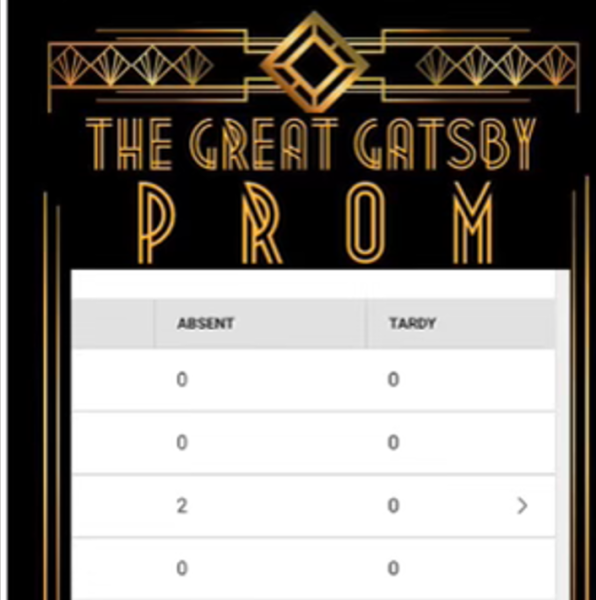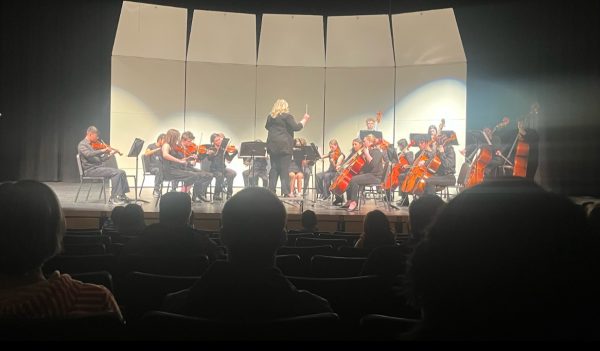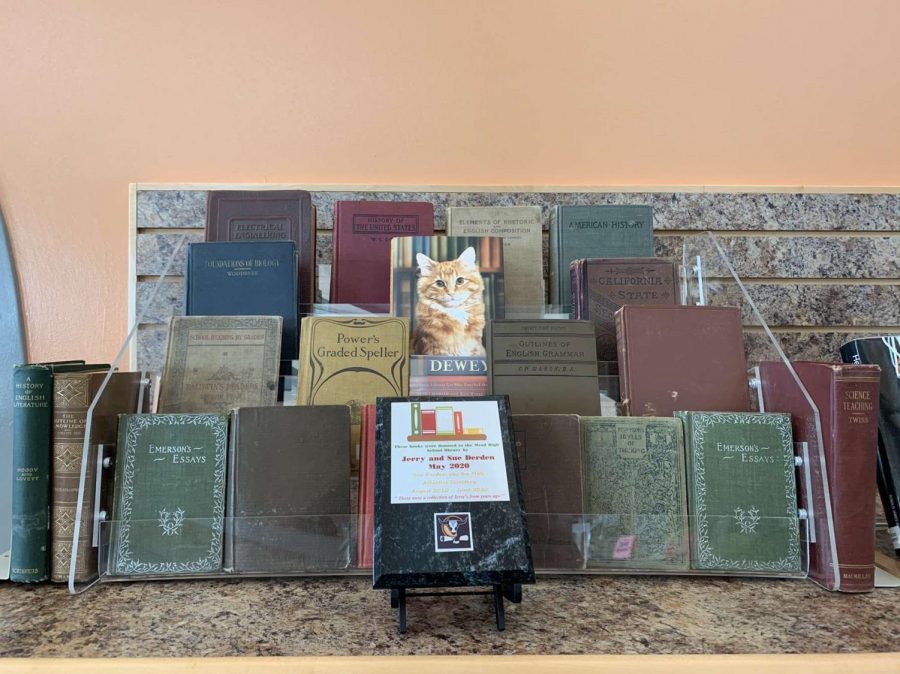Teaching classics in school sucks the joy out of reading for many students (Opinion)
Students should have the chance to read some more modern books in language arts classes
Language arts curriculum does not need to only include classics.
So here’s the thing: I’m lucky enough to have enjoyed most of the classics I’ve read. I even own quite a few classics that I plan on picking up on my own without having to read them for school. However, I know that many of my fellow classmates have not enjoyed the classics — like The Adventures of Huckleberry Finn by Mark Twain, To Kill a Mockingbird by Harper Lee, and Great Expectations by Charles Dickens — that they’ve had to read for school. A lot of students won’t even finish reading the book because they don’t like it.
And I don’t blame them.
Personally, I consider myself an avid reader. I spend the majority of my free time reading, and I own a personal library of about 350 books. I do not mind having to read books for school. Most of the time.
I know so many people — peers and others — that have stopped reading or claim they don’t like reading because they’ve been forced to read classics in school. Normally, if you don’t like a book, you can just stop reading the book and pick up something else. But when a person has to read a book for school, they are expected to finish it even if they don’t like it. Whenever I have to read a book I don’t like, I tend to fall into a reading slump and don’t want to read anything else. That is what’s happening to students when they’re forced to read books for school.
Don’t get me wrong: I do think the classics are still useful and can teach students a lot of important lessons. I just don’t think classics should be the only thing that students have to read for school.
Students can learn the same lessons they would reading classics by reading more modern texts or even books of their choosing. With hard-to-understand language and often sexist and racist themes, students shouldn’t have to read classics to learn lessons about character development and setting when more modern novels can teach students the same lessons.
#DistruptTexts is an effort by teachers for teachers to challenge traditional canon (classics) and produce a more inclusive and representative curriculum in language arts classrooms. The effort is not trying to ban books; instead, the effort is trying to stop any censorship and banning efforts that are in place to keep LGBTQ+ and BIPOC authors’ works out of the school curriculum and place more relatable works into the hands of students.
There has been much discourse about the #DisruptTexts movement because people think that the movement is trying to ban classics and keep them out of school curriculum, but that isn’t at all what the movement is about. The movement is advocating for a curriculum that is culturally responsive and inclusive.
However, the texts being taught in school should already be inclusive; otherwise, the curriculum being taught has the potential to cause harm to the students being forced to learn the texts. We wouldn’t condone students and faculty talking about marginalized groups the way that classics sometimes talk about marginalized groups. So why would we potentially teach students that it is okay to talk about people the way that some classics do and potentially enforce the ideologies found in classic literature?
Personally, I don’t think that limiting classics in the curriculum should just be about creating a more diverse curriculum, but it should also be about increasing student enjoyment and, as a result, student engagement.
I find that the more I enjoy a book, the more I want to talk about it. This is also true in the case of reading assigned classics in school. If I genuinely enjoy and connect with a novel, the more likely I am to engage in class discussions and start conversations with my peers about the text. If students read more texts they enjoy or connect with, discussion of the books in class may increase. Another plus could be that students might want to read on their own without it having to be for school.
As a reader that reads many books that are of my own choosing, I get to learn so much. To be frank, I have probably learned more from reading the books that I want to than the books that I have been forced to read for school, and I tend to enjoy them more.
I know my own reading taste, so if a teacher were to give an assignment asking me to pick a book, giving a few parameters, I could do that. I could find a book that would fit the requirements desired by the teacher and that I would enjoy reading. Just because a book is student-picked does not mean that it can’t be educational and teach the student something valuable.
Students can still learn lessons about character and character development, plot, setting, and even some figurative language by reading a book that they chose themself. Students could actually show how they can apply what they are being taught in class to something that they chose instead of something that has been assigned to them and could make them not enjoy reading.
Whether it is having students choose their own individual books to read on their own, having students vote on a couple books that everyone tries to read as a class, or even having students split into small groups to read books that they want to with each other, there are plenty of ways to make reading for school more enjoyable while remaining educational.
I was one of the kids that loved to do book reports. You can criticize all you like, but wouldn’t you prefer for students to actually enjoy their assignments instead of despising them and growing to hate reading?
Maybe if schools didn’t force students to read classics for school or book reports, more students would enjoy reading. Let students pick a book that they want to read and discuss instead of forcing them to read a book that they can’t even understand.
Teaching only classics to students in language arts classes is essentially showing students that schools care more about teaching a certain book than whether a student will enjoy or connect with it.
School should be about learning and growing. The moment that schools care more about teaching a certain book than students learning is when schools tell students that test scores are all that matter. That is when students start cheating and hating school.
For further reading: Harvard has put together a list of books that could be taught in schools to diversify the reading curriculum.
Your donation will support the student journalists of Mead High School. Your contribution will allow us to purchase equipment and cover our annual website hosting costs.

Joya Haskin is a Senior. She enjoys reading, writing, watching TV, and hanging out with friends. Joya is a member of NHS and the Leadership Posse Team. Joya is looking forward to learning how to write different types of articles this year.
You can contact her at [email protected]














Abby Koehler • Feb 5, 2021 at 12:07 pm
Thanks for sharing this, Joya! This is such a well written article, and I think you articulated your opinion very thoroughly and thoughtfully! I’m so glad that you shared the list at the end. I remember that when I was in 11th grade, Their Eyes Were Watching God was on our list of books for the year, but we never got to it. I still haven’t read it, so I have no idea what it’s about, and I never would have known that it was a more diverse book if I hadn’t seen it on this list just now. And of course we only read books from a certain gender and race that school year (I don’t think we even read a female author of any kind). That’s crazy! I’m really glad that people are starting to speak about this issue and provide solutions!